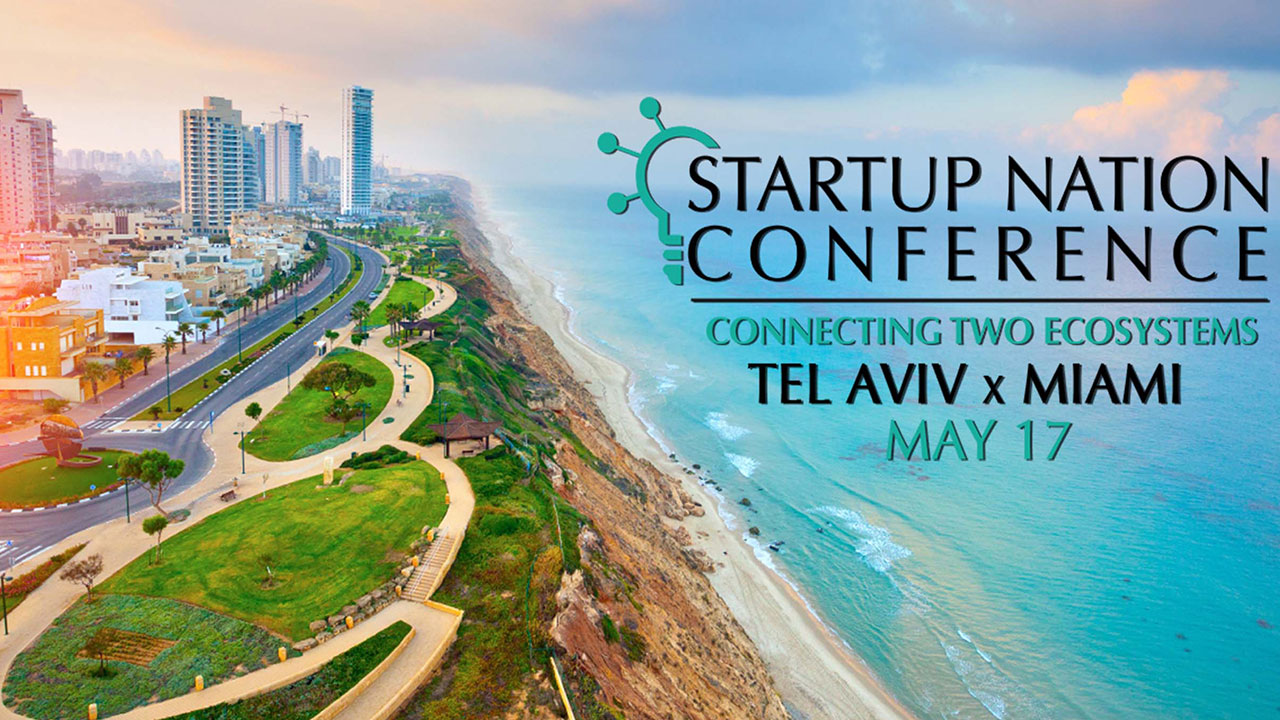
Miami, Tel Aviv exchange insights on entrepreneurship with Startup Nation conference
Startup Nation from Knight Foundation on Vimeo.
The first Startup Nation Conference at Miami Dade College’s Wolfson Campus in downtown Miami last week was a day of discussions about pure business, exit strategies and the role of government in funding innovation, but also about having projects with a larger, social purpose; hard statistics and talk about problem-solving strategies but also the importance of chutzpah and questions about the role of Jewish mothers in tech culture; and presentations, at times bordering on science fiction, about technologies for non–invasive neurosurgery, using the mobile phone to provide cervical cancer screening and treatment services, critical for rural populations; giving voice to patients with speech disorders; and an augmented reality product that seemed to blend seamlessly virtual and physical reality.
Hosted by The Idea Center at Miami Dade College and Tel Aviv University, the Knight-sponsored conference offered insights into Israel’s success in technology and is part of an effort to build bridges between the innovation and entrepreneurial ecosystems in Tel Aviv and Miami. It was one more step in a developing relationship that started with a visit by a 12-person delegation from Miami in March 2015. The group spent a week in Israel as part of Project Interchange, a nonprofit educational institute of the American Jewish Committee. The exchange was funded in part by Knight Foundation.
This was followed in August by a knowledge-sharing agreement between The Idea Center at Miami Dade College and Star TAU, Tel Aviv University’s Entrepreneurship Center, linking the entrepreneurial and high-tech communities in South Florida and Tel Aviv, the top startup ecosystem outside the United States and fifth best in the world after Silicon Valley, New York, Los Angeles and Boston, according to Compass’ 2015 Global Startup Ecosystem Ranking.
Numbers never tell the full story but, according to a report in the Times of Israel in January, “Exits for Israeli tech firms hit near record levels,” with “104 exits of all types during the course of the year, worth over $9 billion to the firms and their investors.” And according to the “PwC Israel 2015 Hi-Tech Exit Report,” there was also “robust” growth in mergers and acquisitions from $5 billion in 2014 to$7.2 billion in 2015, an increase of 44 percent.
“There’s never been a better time to be an entrepreneur,” said Knight Foundation Miami Program Director Matt Haggman in his introductory remarks at the conference. “There’s never been a time what we can do so much with so little, and for those who are here that are entrepreneurs … the message, more than anything else, is: ‘It’s possible.’”
For Oren Simanian, founder of StarTAU, “it’s a partnership to educate the next generation of entrepreneurs both in Israel and here in Miami. We can do it together.”
The conference, which featured 25 speakers including both entrepreneurs and investors, was set up in four sessions illustrating a startup’s life cycle: Ideation, Launch, Growth and Exit.
Over the day, certain themes came into focus such as the role of the military (Israel has a draft for women and men), “a place where you learn skills such as leadership and teamwork that help you in becoming an entrepreneur,” said Nir Tel-Oren, of Israel Aerospace Industries and himself a retired lieutenant colonel in Israel’s air force. Jonathan Medved of OurCrowd, an investment company focusing on startups, stressed how “necessity breeds innovation.” “Israel is largely desert and, [yet], Israel can emerge as a global leader in water technology, a country that has no water.”
Similarly, from a business perspective, entrepreneurs learn to turn limitations such as the size of the local market into a competitive advantage.
“Being a small country can work for you in some situations,” said Nimrod Cohen of Plus Ventures, an early-stage investment firm. “Because in Israel there is no startup that is looking at their local market; from the very first meeting, when you are deciding the name of the company or the URL, they’re looking at the American market and other places. So if they’re doing well, it’s big time. Around the world, the entrepreneurs are looking at their local market, be it Germany, France, whatever, and if they are doing well, there they are fine.”
And throughout the day, there were also discussions about diversity, one of the parallels between Tel Aviv and Miami, although as a woman in the audience observed during one of the panels, of the more than 25 speakers in the program, only two were women.
“We want more women in the industry,” responded Isaac Litman, of Neteera Technologies, which produces a non-invasive detecting system. “Women bring their own way of looking at things. I think if you really want to create something healthy, you need to have different perspectives. I hope we see more women stepping forward and taking the lead.”
Early in the day, Maurice Ferré, former CEO and chairman of Mako Surgical Corp., chairman and CEO of Insightec, made a keynote presentation in which he spoke about the company’s focused ultrasound technology and its impact in non-invasive neurosurgery, women’s health and cancer treatment. But Ferré, son of former Miami mayor Maurice Ferré, was also a forceful champion of South Florida and its potential.
“I’m very passionate about Miami,” said Ferré. “Not only do we have the beautiful coastline but I would submit to you that Miami has the tenacity, the strength as my dad says, the grit. Why? Because Miami has a population of immigrants of people who have come here for whatever reason and had been able to recreate their dream — and that’s not too far and different from what we see in Israel.”
Fernando González is a Miami-based arts and culture writer. He can be reached via email at [email protected].
Recent Content
-
Community Impactarticle ·
-
Community Impactarticle ·
-
Community Impactarticle ·


